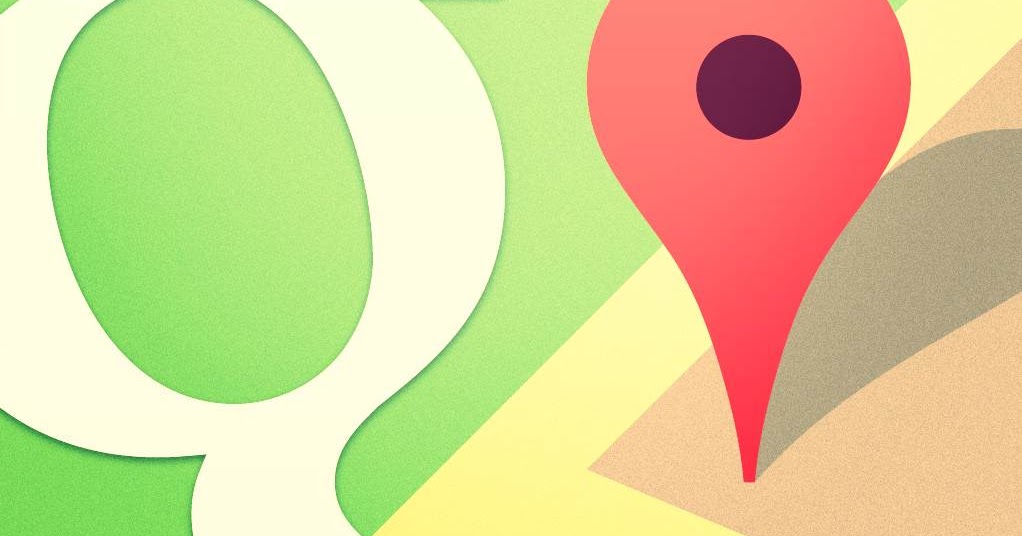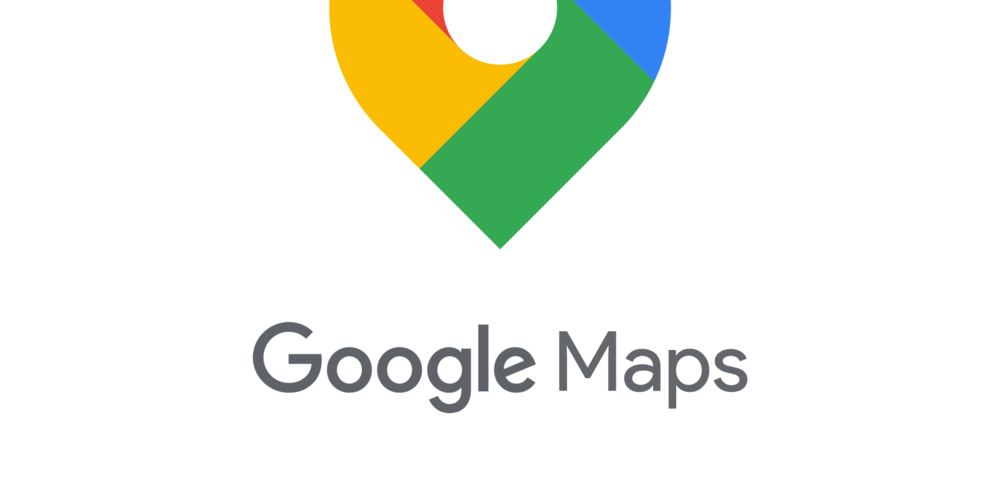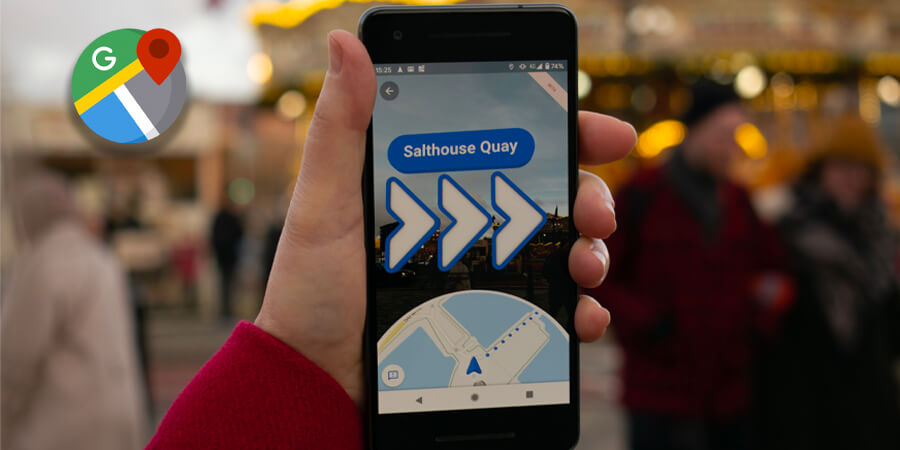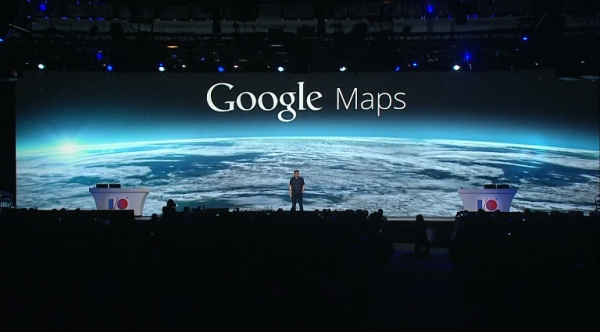Navigating the Future: A Look at the Potential of Google Maps in 2025
Navigating the Future: A Look at the Potential of Google Maps in 2025
Introduction
In this auspicious occasion, we are delighted to delve into the intriguing topic related to Navigating the Future: A Look at the Potential of Google Maps in 2025. Let’s weave interesting information and offer fresh perspectives to the readers.
Table of Content

Navigating the Future: A Look at the Potential of Google Maps in 2025
The year 2025 is rapidly approaching, and with it, a wave of technological advancements. One area poised for significant evolution is mapping and navigation, with Google Maps at the forefront. While predicting the future with absolute certainty is impossible, analyzing current trends and technological advancements allows us to envision a powerful and potentially transformative Google Maps experience in 2025.
Beyond the Map: A Deeper Integration with the Real World
Google Maps has long been a trusted guide for navigating the physical world. However, the future holds the promise of a more immersive and integrated experience. Imagine a world where Google Maps seamlessly blends with your daily life, providing real-time information and personalized recommendations.
-
Augmented Reality (AR) Integration: AR overlays digital information onto the real world, transforming how we interact with our surroundings. Google Maps could leverage AR to display turn-by-turn directions projected directly onto the street, highlight nearby points of interest, or even provide real-time traffic updates overlaid on the road ahead. This would eliminate the need to constantly check your phone, improving safety and enhancing navigation.
-
Hyper-Personalization: Google Maps could leverage user data and preferences to provide personalized recommendations, tailored to individual needs. This could include suggesting routes based on preferred modes of transportation, highlighting restaurants based on dietary restrictions, or even providing customized travel itineraries.
-
Smart City Integration: As cities become increasingly connected, Google Maps could play a pivotal role in smart city initiatives. It could integrate with traffic management systems, providing real-time information on congestion and alternate routes. It could also connect with public transportation systems, offering seamless navigation across multiple modes.
A World of Data: Enhancing Navigation with AI
Artificial intelligence (AI) is rapidly changing the landscape of technology, and Google Maps is poised to benefit significantly. AI algorithms can analyze vast amounts of data to provide more accurate and insightful information.
-
Predictive Navigation: AI could analyze historical traffic data, weather patterns, and real-time conditions to predict potential delays and suggest optimized routes. This could significantly reduce travel time and minimize stress.
-
Dynamic Route Optimization: AI can dynamically adjust routes based on changing conditions, such as unexpected traffic jams, road closures, or weather events. This ensures users always take the most efficient path, even in unpredictable situations.
-
Personalized Travel Recommendations: AI can analyze user preferences and past travel patterns to provide personalized recommendations for destinations, attractions, and activities. This could help users discover new places and experiences tailored to their interests.
Beyond Navigation: Expanding the Scope of Google Maps
The future of Google Maps goes beyond just navigation. It has the potential to become a comprehensive platform for exploring and interacting with the world around us.
-
Immersive Exploration: Google Maps could offer immersive 3D tours of cities and landmarks, allowing users to virtually explore places from the comfort of their homes. This could be particularly useful for planning trips or experiencing destinations that may be inaccessible in person.
-
Enhanced Search Functionality: Google Maps could integrate with other Google services, such as Google Search, to provide more comprehensive information about locations. This could include reviews, photos, opening hours, and even real-time updates on events and activities.
-
Community-Driven Content: Google Maps could empower users to contribute their own knowledge and experiences, enriching the platform with local insights and user-generated content. This could create a more dynamic and engaging platform, fostering a sense of community among users.
FAQs on Google Maps in 2025
Q: Will Google Maps be available in all languages and regions by 2025?
A: Google has been actively expanding its language and regional coverage for Google Maps. While it is impossible to guarantee complete global coverage by 2025, the company’s ongoing efforts suggest significant progress in this area.
Q: Will Google Maps integrate with other Google services, such as Google Assistant?
A: Google has already begun integrating Google Maps with other services, such as Google Assistant, to provide a more seamless user experience. This trend is likely to continue, allowing users to access navigation and location-based information directly through their voice assistants.
Q: What are the privacy concerns associated with the use of Google Maps in 2025?
A: As Google Maps utilizes user data for personalization and optimization, privacy concerns are valid. Google has implemented privacy policies and controls to ensure user data is handled responsibly. However, it is crucial for users to be aware of their privacy settings and make informed decisions about the data they share.
Tips for Using Google Maps in 2025
-
Utilize the Latest Features: Keep your Google Maps app updated to access the latest features and improvements.
-
Enable Location Services: Allow Google Maps to access your location to provide accurate navigation and personalized recommendations.
-
Customize Your Preferences: Take advantage of personalization settings to tailor Google Maps to your specific needs and preferences.
-
Explore Immersive Features: Experiment with AR and 3D features to enhance your navigation and exploration experience.
Conclusion
Google Maps is poised to play a central role in shaping the future of navigation and exploration. By leveraging advancements in AR, AI, and data integration, Google Maps has the potential to become a truly transformative platform, seamlessly blending the digital and physical worlds. The possibilities are endless, promising a more personalized, intelligent, and immersive experience for users worldwide.








Closure
Thus, we hope this article has provided valuable insights into Navigating the Future: A Look at the Potential of Google Maps in 2025. We thank you for taking the time to read this article. See you in our next article!